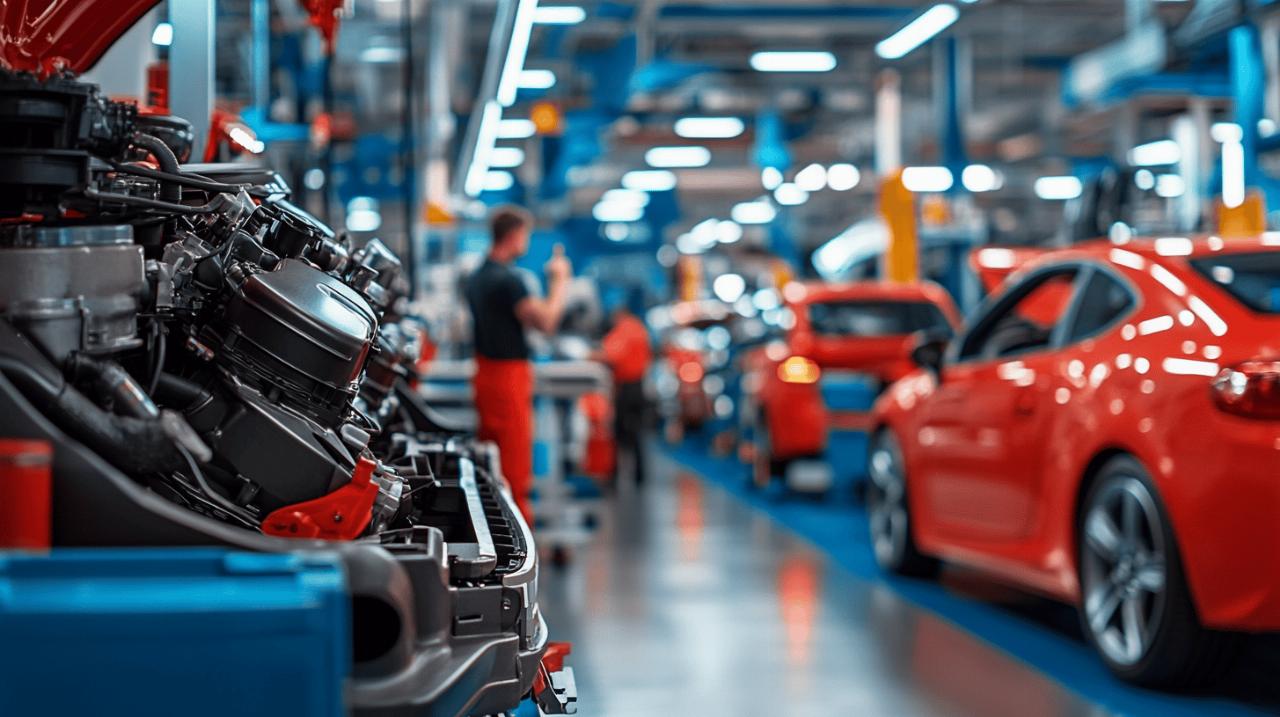Proper vehicle maintenance is the cornerstone of automotive longevity and reliability. By following a structured approach to caring for your motor car, you can avoid costly repairs and ensure optimal performance throughout its lifespan. This guide will walk you through essential maintenance practices that every vehicle owner should implement.
Understanding routine maintenance schedules
Every vehicle comes with manufacturer-recommended service intervals designed specifically for that model. These guidelines are not arbitrary suggestions but carefully calculated schedules based on engineering specifications. The Auto Service Gallery experts emphasize that adhering to these maintenance timeframes is crucial for preserving your vehicle's performance and resale value. Most modern vehicles will alert you when service is due, but understanding the logic behind these intervals empowers you to make informed decisions about your car's care.
Decoding your vehicle's recommended service intervals
Vehicle maintenance schedules typically operate on two parameters: mileage and time. For instance, oil changes might be recommended every 6,000 miles or six months, whichever comes first. This dual approach ensures that even low-mileage vehicles receive necessary maintenance, as some components deteriorate with time regardless of use. The recommended intervals cover essential services including oil changes, filter replacements, fluid checks, and more comprehensive inspections. Many mechanics use acronyms like FORCES (Fuel, Oil, Rubber, Coolant, Electrics, Screen wash) or FLOWER (Fuel, Lights, Oil, Water, Electrics, Rubber) to remember key maintenance areas during routine checks.
Building a personal maintenance calendar for your motor car
Creating your own maintenance schedule helps ensure no service is overlooked. Start by consulting your vehicle's manual and noting all recommended service intervals. Then, incorporate additional checks that should be performed more frequently. For example, tyre pressure should be checked every two weeks, while tread depth should maintain at least 1.6mm legally, though 3mm is recommended for winter driving. Engine oil levels warrant monthly inspection, while coolant and other fluid levels should be examined regularly. For modern diesel vehicles manufactured after 2007, the Diesel Particulate Filter requires special attention to prevent costly repairs. Electric vehicles have their own maintenance requirements that differ significantly from conventional vehicles, focusing more on battery health and electronic systems rather than traditional fluid checks.
The value of prompt repairs
 The difference between a minor repair and a major overhaul often comes down to timing. Addressing small issues promptly can prevent them from developing into expensive problems that threaten your vehicle's reliability and safety. Professional mechanics can quickly diagnose and fix minor concerns before they escalate, saving you both money and inconvenience in the long run. This proactive approach to vehicle maintenance represents an investment rather than an expense.
The difference between a minor repair and a major overhaul often comes down to timing. Addressing small issues promptly can prevent them from developing into expensive problems that threaten your vehicle's reliability and safety. Professional mechanics can quickly diagnose and fix minor concerns before they escalate, saving you both money and inconvenience in the long run. This proactive approach to vehicle maintenance represents an investment rather than an expense.
Recognising warning signs that require immediate attention
Your vehicle communicates potential problems through various signals. Dashboard warning lights serve as the most obvious indicators, each representing specific systems requiring attention. Never ignore these illuminated warnings, as they typically indicate issues that could worsen rapidly. Beyond dashboard alerts, pay attention to unusual sounds like grinding brakes, squealing belts, or knocking engines, as these acoustic warnings often precede mechanical failures. Performance changes such as reduced fuel efficiency, difficulty starting, or unusual handling characteristics may indicate developing problems. Visual cues matter too: fluid puddles beneath your parked vehicle, visible damage to tyres, or excessive exhaust smoke all warrant prompt professional assessment. According to maintenance statistics, about 65% of vehicle owners have replaced components like glow plugs recently, while nearly 21% admit to never changing their engine oil, a concerning statistic given its critical importance.
Cost benefits of addressing minor issues before they escalate
The financial advantages of timely maintenance are substantial. Consider brake maintenance: replacing worn pads costs significantly less than repairing damaged rotors that result from neglected pads. Similarly, regular oil changes at approximately £40-60 prevent engine damage that could cost thousands to repair. Proper tyre maintenance not only prevents premature replacement but improves fuel efficiency by up to 10%. Even simple practices like keeping your vehicle clean prevents corrosion that could necessitate expensive bodywork repairs. Services from reputable providers often come with guarantees, such as the one-year or 12,000-mile warranty on parts and labour offered by some approved garages. While scheduling regular maintenance might seem inconvenient, the alternatives of breakdown recovery, emergency repairs, and potential safety hazards represent far greater costs and disruptions. Implementing a comprehensive maintenance routine ultimately transforms vehicle care from a series of reactive expenses into a planned investment in reliability and longevity.